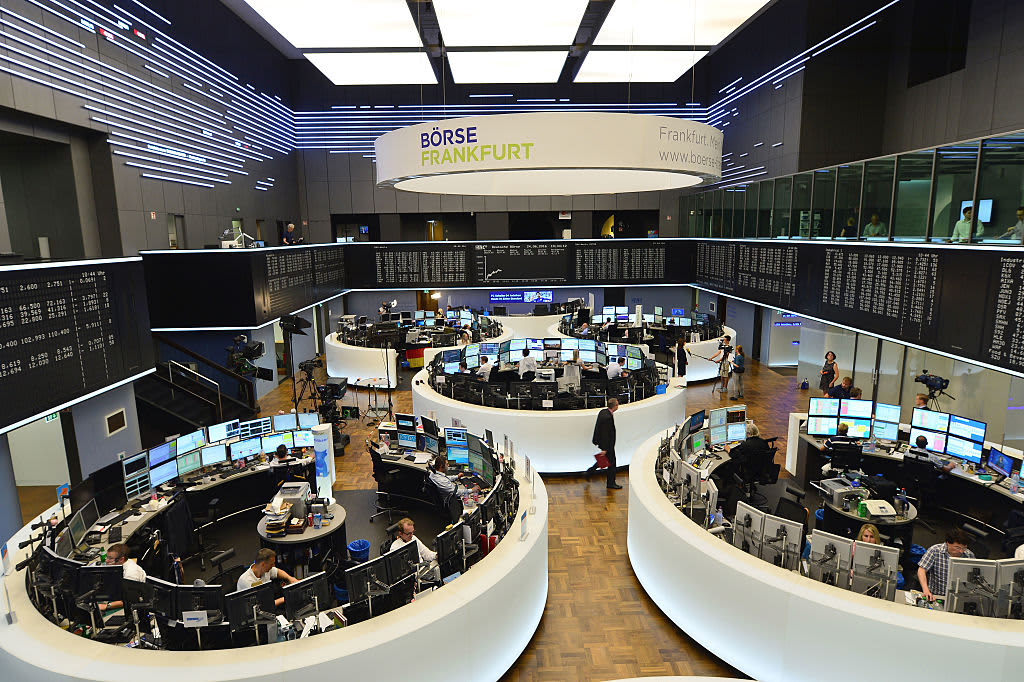
LONDON — European stocks pulled back on Friday, following global momentum as a fresh round of hawkish comments from Federal Reserve officials resurfaced expectations for imminent policy tightening.
The pan-European Stoxx 600 fell 1% by early afternoon deals, with tech stocks dropping 2% to lead losses as almost all sectors and major bourses slid into negative territory.
In terms of individual share price movement, French state-owned utility EDF plunged more than 15% after being ordered by the government to sell more of its cheap nuclear power to smaller rivals in order to curb electricity price rises. The company subsequently dropped its earnings guidance.
At the top of the European blue chip index, Britain’s Countryside Properties gained 7.3% as investors bought the dip following a 21% sell-off for the stock on Thursday.
Several Federal Reserve policymakers on Thursday signaled that they could be prepared to begin raising U.S. interest rates in March, with inflation now running at 7%. The rate rose at its fastest 12-month pace in nearly 40 years in December.
Expectations for higher rates — which make future cash flows look less attractive — have led to a choppy start to 2022 for global markets.
It’s a big day for Wall Street earnings on Friday, with JPMorgan, Citigroup, BlackRock and Wells Fargo all reporting fourth-quarter results.
Investors are also watching the unfolding geopolitical situation surrounding Ukraine, after Russia poured cold water on talks with NATO members. The breakdown of negotiations prompted U.S. diplomatic official Michael Carpenter to say that “the drumbeat of war is sounding loud and the rhetoric has gotten rather shrill.”
In corporate news, German software group SAP on Thursday reported a 28% jump in fourth-quarter revenue for its cloud computing business.
On the data front, the U.K. economy grew by 0.9% in November, the Office for National Statistics said Friday, vastly outstripping expectations and taking its gross domestic product above its pre-pandemic level for the first time.
Germany’s economy grew 2.7% in 2021 after a 4.6% plunge in 2020, fresh data showed Friday, as semiconductor shortages hit the automotive sector and further Covid-19 containment measures slowed the recovery for Europe’s largest economy.
Subscribe to CNBC PRO for exclusive insights and analysis, and live business day programming from around the world.




